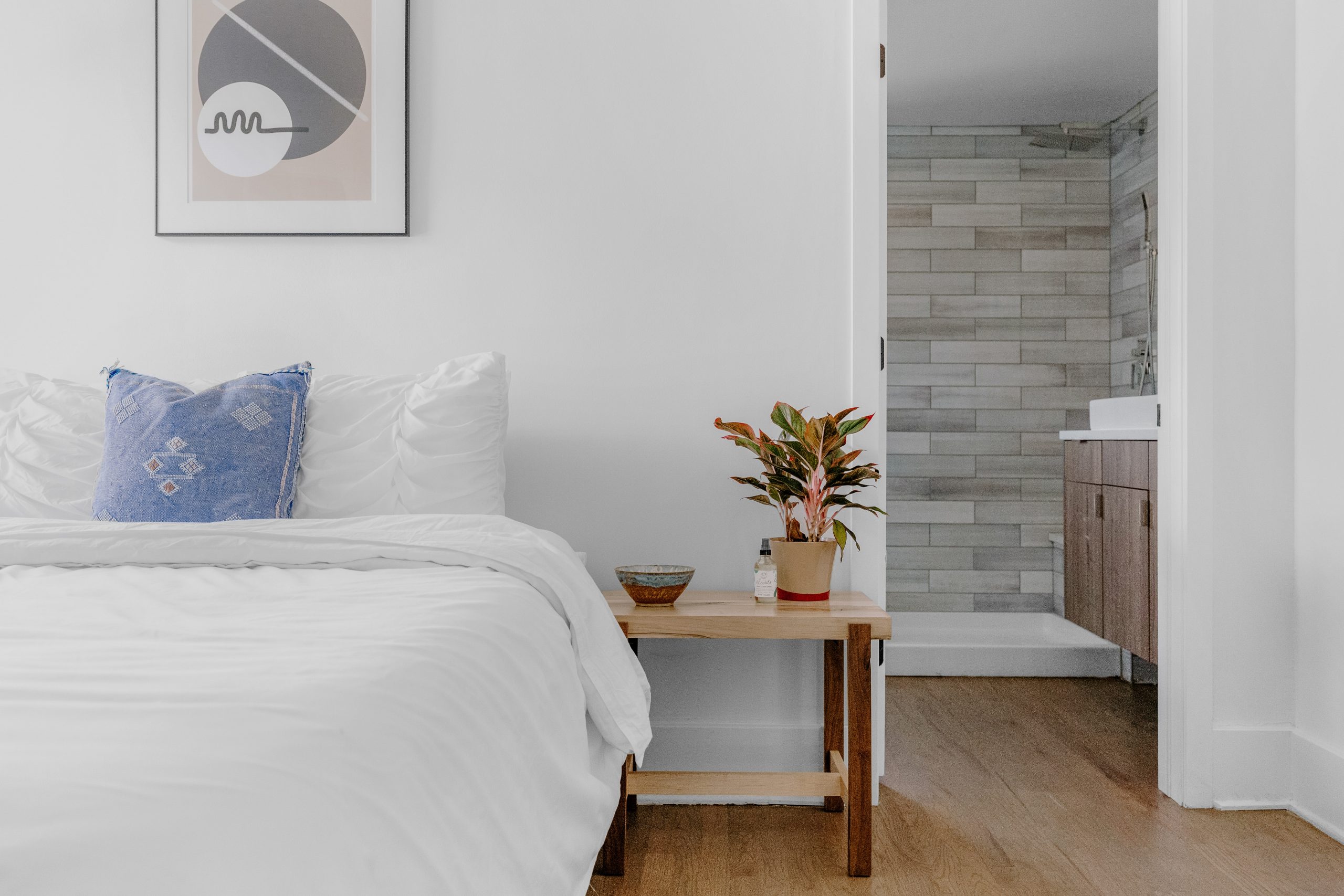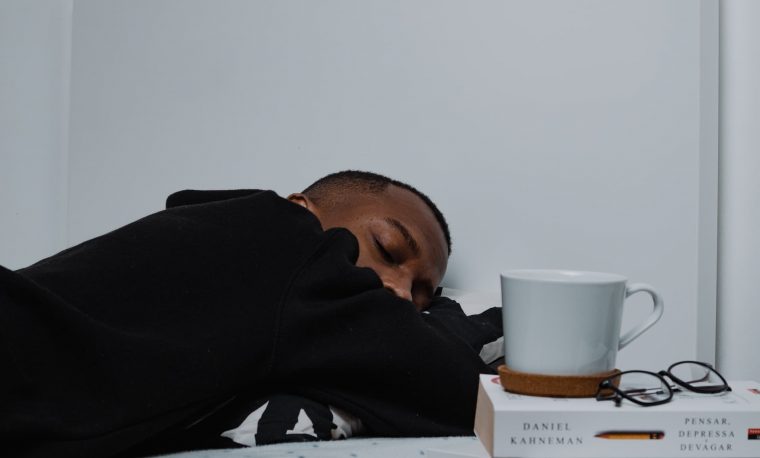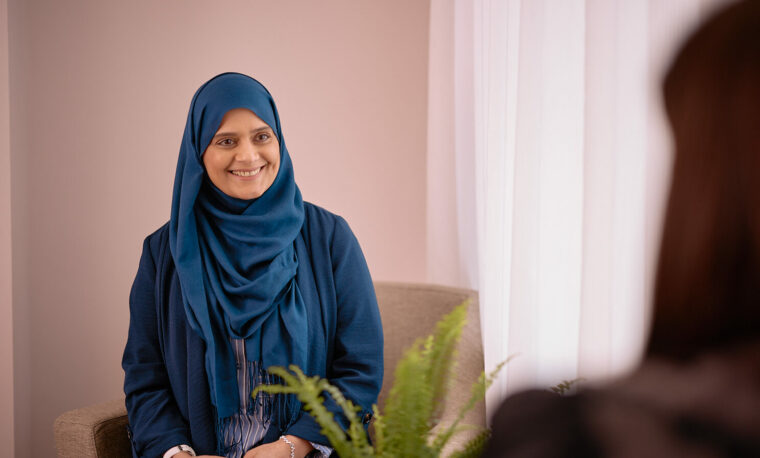Sleep disorders
Sleep disorders are characterised by difficulty to achieve a good quality of sleep. An estimated 20% of the population are thought to suffer from insomnia or another form of sleep disorder.
Sleep plays a vital role in physical and mental health, and a deficiency can lead to injury, loss of productivity and the development of mental health conditions. There is also a chance that sleep issues may be co-existing with another mental health problem.
Common types of sleep disorders
- Nightmares
You may have nightmares if you are stressed, anxious, depressed or withdrawing from drugs such as minor tranquillisers or antidepressants. They are sometimes caused as an adverse effect of medication and common following a traumatic event.
- Sleepwalking and night terrors
These occur during deep sleep and may be caused by stress or when normal sleep patterns have been broken. Both are more common in children.
- Sleep paralysis
During the dreaming (REM) phase of sleep, limb muscles are limp and effectively paralysed. In a small number of people sleep paralysis does not occur and they may get up and act out their dreams or behave in strange or dangerous ways, including binge eating or attacking their partner which they cannot remember when they wake up.
- Hallucinations
People sometimes have hallucinations as they are falling asleep or while they are waking up.
- Narcolepsy
If you are experiencing extreme daytime sleepiness, this may be caused by a condition called narcolepsy. Symptoms include falling asleep frequently, throughout the day, and experiencing vivid images and voices as you drop off to sleep.
- Sleep apnoea
Sleep apnoea means that you stop breathing for short periods while you are asleep, and this causes disturbed and poor quality sleep.
For further information visit www.mind.org.uk
Signs and symptoms of sleep disorders
Signs that you may be suffering from a sleep disorder include:
- Trouble falling asleep
- Waking up through the night and struggling to fall back asleep
- Waking up too early or going to sleep too late
- Feeling exhausted after waking and general tiredness throughout the day
- Irritability
- Trouble concentrating or paying attention
- Lapse in memory
Things that may disrupt your sleep pattern
- Snoring that interferes with breathing or breathing conditions
- Ill-health or physical pain
- Emotional difficulties including anxiety, stress and depression
- Jet lag or shift work
- Traumatic events such as a divorce, redundancy or bereavement
- Medication such as steroids, beta-blockers, some painkillers, antidepressants, slimming tablets and cold remedies
- Withdrawing from certain drugs, such as tranquillisers or antidepressants
- Taking street drugs such as ecstasy, cocaine and amphetamines
- Overusing alcohol, tobacco and caffeine
- Physical disturbance such as noise, inappropriate light levels and physical discomfort
- Taking vigorous exercise just before bedtime
- Eating a large meal close to bedtime
- Taking naps in the daytime, especially if late in the day
How can you improve sleep?
The key to feeling refreshed is having a regular pattern of sleep, rather than the number of hours of sleep you get.
Establishing a routine
- Go to bed only when you feel tired enough to sleep. If you always take a long time to get to sleep, delay going to bed until the time when you normally fall asleep and get up at your usual time. This should mean you spend less time in bed, but more of it asleep, and your sleep pattern should improve.
- Set the alarm at the same time each morning. Don’t sleep in late to make up for a bad night. This will only make it harder to sleep the following night. You may need to follow this programme for several weeks, to establish a regular pattern.
- Don’t watch television or use your computer in bed. These are waking activities.
- If you don’t fall asleep within 20 minutes, get up and relax in another room. Do something soothing, such as listening to music, until you’re tired enough to go back to bed.
- Avoid taking a nap during the day. But if you are really tired, taking a short nap after lunch can be beneficial; sometimes sleep promotes sleep.
- After a long flight, try to adjust to local time. However tired you feel, go to bed close to the local bedtime and get up reasonably early the next morning. You should then quickly adjust to a new pattern.
Sleep aids
- Check your sleeping arrangements. Are your bed and bedding comfortable? Do the temperature and light levels suit you? Is there enough fresh air in the room? If you are easily bothered by noise, try using earplugs.
- Set aside time during the early evening for reflecting on your day. Write down an action list to deal with any worries. This stops you from lying awake worrying in bed later.
- Wind down close to bedtime, avoiding any complicated work or activity.
- Listen to the radio quietly to distract you from any daytime concerns.
- Have a warm bath to help you unwind.
- Practise a relaxation technique before you go to bed.
- Hop pillows or a few drops of lavender oil in the bath or on your pillow may help you relax.
- Herbal sleep remedies for which there is some evidence include valerian, passionflower, lemon balm and hops. Caution: take care if you take medication, as herbs may cause adverse effects or alter the effectiveness of the drug.
- A hot milky drink may encourage sleep.
- Don’t try to force sleep, it will only make you feel more anxious. Try keeping your eyes open and as they start to close tell yourself to resist. The more you try to stay awake, the sleepier you’ll become.
- Interrupt unwanted thoughts by repeating a soothing word over and over to yourself.
- Visualise a scene or landscape that has pleasant memories for you. If you wake during the night, go through your relaxation routine.
Lifestyle improvements
- Avoid caffeine: coffee, tea, cocoa and cola. Try herbal or decaffeinated drinks instead.
- Limit alcohol in the evening to one or two drinks and avoid drinks that have disturbed your sleep in the past.
- Get enough exercise. Fit people sleep better, on the whole, and if you haven’t had any exercise during the day, it will be more difficult to sleep soundly. Consider going for a walk in the early evening; however, exercise too close to bedtime will stimulate you and make it harder to relax for sleep. Yoga and meditation are also useful methods for combating stress.
- Eat only a light meal in the evening and avoid snacks. If you need a snack late at night protein foods that are digested slowly are better than sugary carbohydrates which will give you an energy boost just when you need to relax.
- If you are feeling very stretched during the day, doing a stressful job and taking on too many responsibilities, you are unlikely to sleep well. Insomnia can be a symptom of other, more general difficulties, and you may need to look at your workload, improve your assertiveness, or time-management and decision-making skills.
Treatment for sleep disorders at Nightingale Hospital
Our highly qualified team of over 40 consultant psychiatrists and 100 therapists will work collaboratively with you to determine the underlying causes of your sleep problems, and help you manage your issues with behavioural techniques and sleep management. Treatment for sleep disorders can be as an outpatient, day patient or inpatient.
Our approach to treating sleep disorders at Nightingale Hospital London combines individualised programmes with treatments based on current clinical evidence.
There are two types of sleep disorder treatment available: Talking therapies and medicatioN.
- Cognitive Behavioural Therapy can assist with changing unhelpful habits causing poor sleep.
- Psychotherapy and counselling, if your sleep problems are caused by depression, anxiety, other emotional problems, or if you are suffering from nightmares, could help you by talking to someone and understanding your sleep disorder stressors.
- Medication can also be effective for sleep problems and sleep disorders if talking therapies are unsuccessful. It is recommended however that sleeping pills are not taken long term as they become less effective when taken every night and you may become dependent on them.
Through therapy and alternative approaches such as meditation, relaxation, sleep therapy and physical therapies; we aim to give you the knowledge and coping skills for dealing with your sleep problems effectively.
If you would like support to improve your sleep, please call us on 020 7535 7700 or email patientservices@nightingalehospital.co.uk








